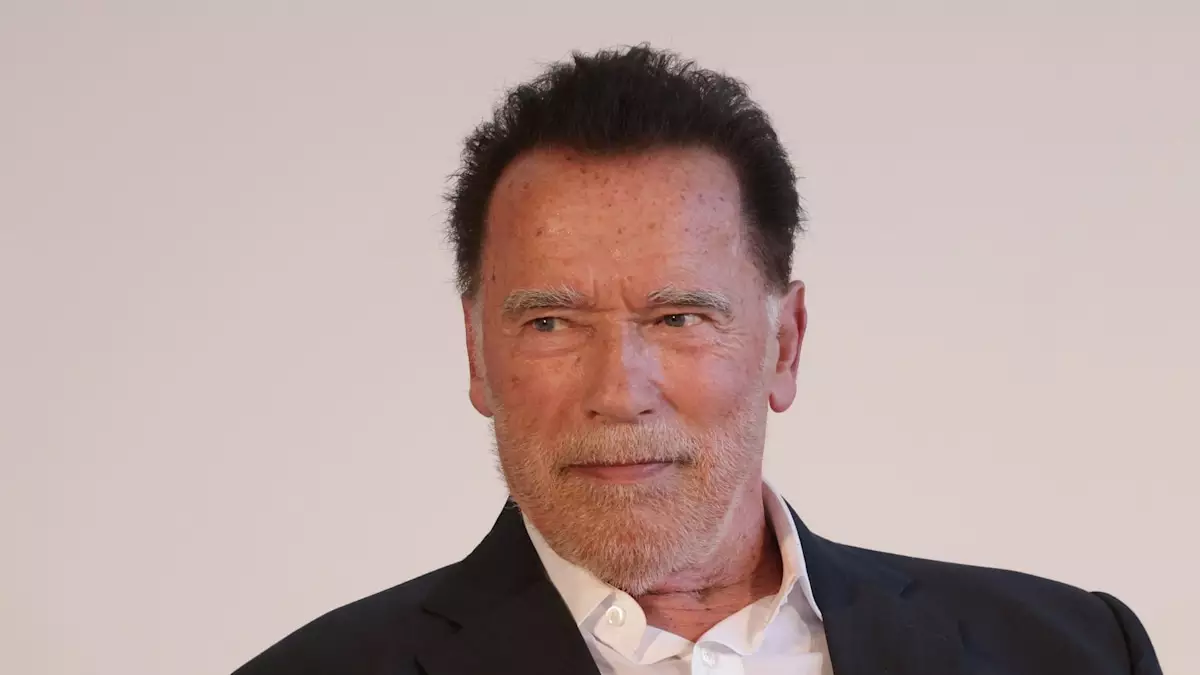In an unexpected turn of events, Arnold Schwarzenegger, once a staunch Republican and the former Governor of California, has publicly extended his support to Vice President Kamala Harris. This shift in alignment comes as the political tensions in the United States reach new heights, particularly in anticipation of the impending election on November 5. In a detailed message shared on social media platform X, Schwarzenegger elaborates on his dissatisfaction with both major political parties, illustrating a complex tapestry of thoughts that intertwine personal beliefs, political disillusionment, and a call for national unity.
Schwarzenegger’s endorsement stands out not merely for the individual he has chosen, but also for the way he articulates his disenchantment with politics as a whole. His sentiments resonate with many who feel alienated by current political dynamics. As he mentioned, “I don’t like either party right now,” highlighting an essential frustration that seems widespread among voters disillusioned by partisan biases. This statement reaches beyond individual candidates, calling attention to a pervasive sense of disenfranchisement that weighs heavily on the electorate. By candidly expressing his disdain for both parties, Schwarzenegger positions himself not simply as a supporter but as a voice for a frustrated variety of voters who feel misrepresented.
What is particularly striking about Schwarzenegger’s message is his unwavering commitment to democratic principles, even in a time of political turmoil. He vehemently argues against the rejection of electoral outcomes, framing it as fundamentally “un-American.” This perspective is a critical reminder of the values upon which the United States was founded. Schwarzenegger’s assertion—”I will always be an American before I am a Republican”—serves not just as a personal declaration but as an appeal for collective responsibility among voters to prioritize democratic integrity over entrenched party lines. His thoughts echo a sentiment of unity, urging citizens to reflect on the broader societal implications of their political choices.
In his detailed missive, Schwarzenegger offered pointed criticism of Donald Trump, labeling him as a detractor of democratic principles and emphasizing the divisive nature of his leadership. The connection he draws between Trump and key moments of political unrest, notably the January 6 insurrection, serves to illustrate his belief that continuing in this direction would further fracture the nation. By denouncing Trump’s actions as counterproductive and potentially harmful to the fabric of the country, Schwarzenegger articulates a search for a forward path—one that requires not just a change in leadership but a shift in the national discourse.
The actor’s endorsement of Kamala Harris and Minnesota Governor Tim Walz goes beyond personal allegiance; it serves as a significant call to action for constituents. “Vote this week,” Schwarzenegger insists, with an emphasis on civic duty transcending partisan disagreements. This plea highlights an air of urgency, suggesting that the stakes are higher than party politics; they encompass the very essence of American values and the integrity of governance. His insistence on voting—regardless of agreement with his choice—underscores a foundational principle of democracy: that every voice matters, and every vote counts.
Interestingly, Arnold Schwarzenegger’s endorsement emerges amidst a backdrop of support for Harris and Walz from other high-profile figures. The trend of celebrities entering political discourse indicates a cultural shift where public figures leverage their platforms to influence societal change. While some may question the weight of celebrities in politics, Schwarzenegger’s candidness and experienced perspective lend significant validity to his stance. His narrative adds a layer of authenticity to the political conversation, showing that even those who once embodied rigid political structures can evolve towards a more inclusive and empathetic stance.
Arnold Schwarzenegger’s support for Kamala Harris is more than just an endorsement; it is a poignant critique of political polarization and a clarion call for Americans to unite in fostering democratic values. His message of disillusionment paired with a hopeful outlook for a more inclusive future encapsulates the sentiment of many voters weary of the current political climate. By echoing the importance of collective action and the reverence for democratic integrity, Schwarzenegger boldly reminds us that politics, at its best, should be about collaboration and progress rather than division and hostility. As the election approaches, his call resonates—imploring us to engage, reflect, and ultimately, choose a path that champions unity over discord.
